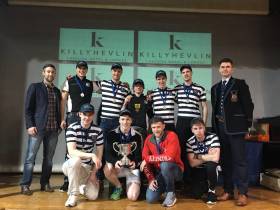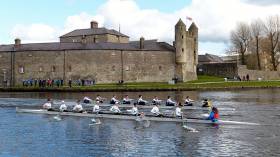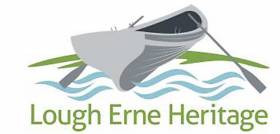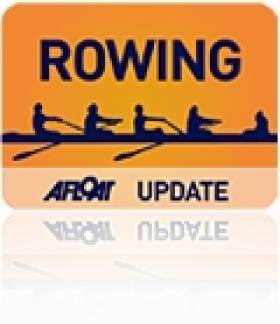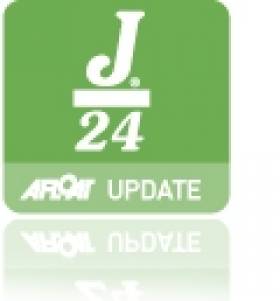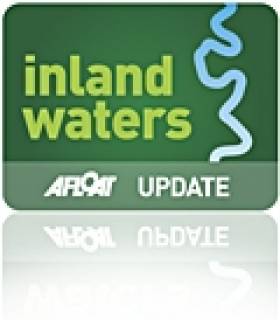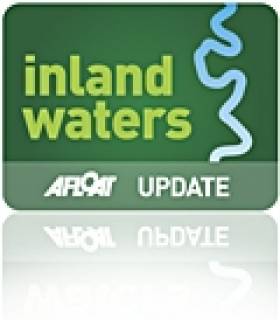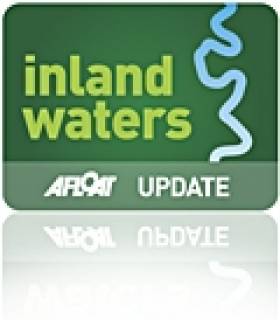Displaying items by tag: Erne
Lough Erne & Lower Bann Navigations Reopen on May 29th
More good news for boat owners on the Erne System, the Shannon Erne Waterway within Northern Ireland and the Lower Bann Navigation, in the form of a Marine Notice from Waterways Ireland. It is planned to open the navigations tomorrow on 29th May.
The organisation says “Within the last seventy-two hours the Northern Ireland Executive has announced more easing of restrictions as part of its five-step roadmap to recovery. Waterways Ireland is now planning the phased reopening of The Erne System, the Shannon Erne Waterway (within Northern Ireland) and the Lower Bann Navigation. Waterways Ireland is currently finalising its roadmap and the phased return of our workforce. It is important to understand that it will take time to fully open the navigations. It requires the introduction of new COVID-19 procedures and protocols for compliance with Health and Safety legislation. This involves the management and mitigation of risk, training of staff and provision of resources for the protection of staff and waterway users. We expect our roadmap to be issued in the coming days. Based on the time to mobilise we expect these navigations to reopen on May 29th”.
The Erne System comprises the two great loughs in County Fermanagh, Upper and Lower Lough Erne. They share dramatic landscapes, with many islands, high cliffs, National Trust properties, ancient monuments, and the mediaeval castle at Enniskillen. As a trade route for the Vikings, it has never been a modern commercial navigation.
The Shannon Erne Waterway runs between Leitrim Village and it links the two great waterways on the island, the Erne System and the Shannon Navigation. It was known as the Ballinamore and Ballyconnell Canal and opened in 1860. Re-opened in 1994 after restoration, it is 63km of river, lake and still-water canal and takes approximately 13 hours to travel.
The Lower Bann is navigable from Lough Neagh to the sea at the Barmouth between Castlerock and Portstewart Strand. With only five locks (one a double lock) there are long rural stretches of open water allowing for some leisurely cruising along this tranquil waterway. Lough Neagh itself if the largest freshwater lake by area in the British Isles. adventure.
The full text of the Notice can be found here
Lough Erne Charter Boat Firm To Reopen on June 5th
Cruise Ireland, the umbrella brand for Locaboat, Carrickcraft, Waveline and Linnsen Boating holidays, says it will open for business on the 5th June on Lough Erne following the easing of COVID-19 restrictions in Northern Ireland.
It follows the Waterways Ireland notice that says the Erne and Lower Bann will reopen from May 29th as Afloat report here.
Cruise Ireland say 'We are looking forward to seeing all our friends again. A boat has always been the perfect place to get away from it all, but this year even more so. We will, of course, be practising best hygiene with social distancing at the marinas, and we will endeavour to get you on your way as quickly as possible".
Trinity Keep Up Record of Wins at Erne Head
#Rowing: Trinity’s senior eight were the fastest crew at the re-fixed Erne Head of the River in Enniskillen today. It was their fourth consecutive win, achieved this year in rainy conditions. Junior crews did well: Enniskillen RBC’s junior men’s eight were third fastest overall and the fastest women’s crew was the host club’s junior eight.
In Amsterdam, UCC’s men’s eight were the best Irish crew at the Heineken Roeivierkamp. They took 32nd in the men’s race over 2,500 metres in seven minutes 36.8 seconds.
Erne Head of the River, Saturday (Selected Results)
Overall: 1 Trinity men’s senior eight 19 minutes 17 seconds, 2 Commercial sen eight 19:50, 3 Enniskillen jun eight 20:04, 4 Trinity inter eight 20:27, 5 Neptune club two eight 20:49, 6 Lagan senior quadruple 20:57: 17 Enniskillen women’s junior eight 22:39.
Men
Eight – Senior: Trinity 19:17. Inter: Trinity 20:27. Club Two: Neptune 20:49. Nov: Trinity A 21:26. Junior: Enniskillen 20:04. Masters: Commercial (D) 21:42. Jun 16: Col Iognaid 22:20.
Four – Jun, coxed: Commercial 22:35.
Sculling, Quadruple – Sen: Lagan Scullers 20:57. Inter: Belfast 21:53. Nov, coxed: Commercial 27:13. Jun: Neptune A 21:12. Jun 16, coxed: Bann 23:17. Masters, coxed: City of Derry (E) 24:31.
Women
Eight – Inter: Trinity 22:48. Club One: Bann 22:46. Club Two: Carlow 25:59. Jun: Enniskillen 22:39. Jun 16: Enniskillen A 23:53. Masters: Portora (D) 30:27.
Four – Sen: Trinity 24:25. Inter, coxed: Trinity 26:35.
Sculling, Quadruple – Jun: Col Iognaid 25:22. Jun 16, coxed: Carlow 25:08. Masters, coxed: City of Derry, Lagan, Offaly (C) 29:42.
Roeivierkamp, Amsterdam (Selected Result)
Men, 2500 metres: 1 Nereus 1e Eight 6:48.6; 8 Nereus 2e Eight 7:10.8; 32:UCC 2e Eight 7:36.8.
60th Head of the River Brings More Than 600 Rowers to the Erne
The Erne Head of the River will welcome an exceptionally large entry of 91 boats and well over 600 rowers to Enniskillen on Saturday, March 4th. The race - the 60th - will be visible from the start point four miles downstream of Enniskillen Royal Grammar School (ERGS) Boat Club with the best views from the Killyhevlin Hotel, riverside in Cornagrade and the finish line at Portora boathouse itself.
Beginning at 1.15pm, each craft will start at a 30 second interval on a race to the finish line at Portora boathouse. Men, women's and junior teams of all ages and abilities will set off in turn in a race against the clock. The 90 boats will stream over the finish line from 1.45pm; for some, setting new records and for others getting to the finish line, the main achievement.
Twenty eight clubs are represented at the event from all over Ireland, including a new club based on the Erne. The Portora Boat Club has been created by old Portorans and parents of rowers from ERGS and other Fermanagh schools continuing the traditions of the old Portora Boat Club. It will challenge at the Head of the River for the first time in the men’s masters.
The event is an opportunity for clubs to gauge their progress during winter training against that of the competition. The number of entries is up 30 on last year reflecting a significant increase in rowing numbers in Northern Ireland and across Ireland.
The Archaeology of the Erne Waterways Talk
Lough Erne Heritage will hold a free talk at 2:00pm, on Saturday 25 February by Claire Foley on ‘The Archaeology of the Erne Waterways’.
Claire Foley, an archaeologist of some 45 years’ experience, working first from Dublin when she excavated Parkes Castle in Co Leitrim then from Belfast since 1975 working with the Department of the Environment on survey and excavation which included Creggandevesky court tomb in Co Tyrone and the iron age burial in Kiltierney in Fermanagh.
Claire spent 1976 and 1977 recording field monuments in Co Fermanagh and pioneering the recording visits to the many crannogs in the county. The results of this survey, a collaboration with many scholars, were published in 2014.
Most of Claire’s recent professional life has been spent managing programmes to help landowners and communities interpret and manage the many ancient monuments on their land.
Trinity Take the Honours at Erne Head of the River
#ROWING: Trinity’s men’s senior eight were the fastest crew at the Erne Head of the River in Enniskillen. They completed the 6,000 metre course in 18 minutes 22 seconds, eight seconds ahead of the senior eight from NUIG. The men’s heavyweight and lightweight senior eights entered by Rowing Ireland were divided by just one second, in fourth and fifth. The fastest women’s crew home were Trinity’s senior eight, with 34 seconds to spare over the Portora junior women’s eight.
Erne Head of the River, Enniskillen, Saturday
Overall: 1 Trinity senior eight 18 minutes 30 seconds, 2 NUIG sen eight 18:30, 3 Trinity intermediate eight 18:50, 4 Carlow, UCC, St Michael’s, Castleconnell, Killorglin sen eight 18:52, 5 Rowing Ireland lightweight eight 18:53, 6 Portora junior eight 18:58.
Men
Eight – Senior: Trinity 18:22. Inter: Trinity 18:50. Club One: Queen’s 19:06. Novice: Queen’s 20:57. Junior: Portora 18:58. Masters (Vet D): Neptune 21:57. Jun 16: St Joseph’s 20:44.
Four – Club One: Trinity (coxed). Jun 18: CAI (coxed) 22:07.
Sculling
Quadruple – Senior: Commercial 19:16. Inter: Sligo 22:10. Jun 18: Carlow A 21:12. Jun 16, coxed: Neptune 22:42.
Women
Eight – Senior: Trinity A 20:19. Club One: NUIG 21:12. Novice: Queen’s A 23:29. Jun 18: Portora 20:53. Masters: Belfast RC (Vet C) 23:56. Jun 16: Portora 22:54.
Four – Club One, coxed: Methody 23:26. Jun 18, coxed: Portora 24:32.
Sculling
Quadruple – Senior: Methody 23:30. Inter, coxed: Portora 25:06. Junior: Bann 21:50.
| 1 | 1 | DUBC | MS 8 | 18:22 | |||
|---|---|---|---|---|---|---|---|
| 2 | 2 | NUIG BC | MS 8 | 18:30 | |||
| 3 | 9 | DUBC | MI 8 | 18:50 | |||
| 4 | 4 | Carlow /UCC/SMRC/ Castleconnell/ Killorglin | MS 8 | 18:52 | |||
| 5 | 3 | Rowing Ireland LM | MS 8 | 18:53 | |||
| 6 | 10 | Portora BC | MJ 18 8 | 18:58 | |||
| 7 | 15 | QUBBC | MC 1 8 | 19:06 | |||
| 8 | 7 | Commercial RC | MS 4x- | 19:16 | |||
| 9 | 8 | Belfast RC | MI 8 | 19:24 | |||
| 10 | 5 | Rowing Ireland HM | MS 4x- | 19:27 | |||
| 11 | 11 | Bann RC | MJ 18 8 | 19:28 | |||
| 12 | 12 | St Josephs RC | MJ 18 8 | 19:46 | |||
| 13 | 17 | Methodist College | MC 1 8 | 19:49 | |||
| 14 | 6 | Skibb / Castleconnell/ UCC /Portadown | MS 4x- | 19:57 | |||
| 15 | 19 | DULBC A | WS 8 | 20:19 | |||
| 16 | 14 | NUIG BC | MC 1 8 | 20:21 | |||
| 17 | 42 | DUBC | MC 1 4+ | 20:41 | |||
| 18 | 26 | St Josephs RC | MJ 16 8 | 20:44 | |||
| 19 | 13 | Blackrock College | MJ 18 8 | 20:44 | |||
| 20 | 16 | DUBC | MC 1 8 | 20:51 | |||
| 21 | 20 | Portora BC | WJ 18 8 | 20:53 | |||
| 22 | 18 | RBAI | MC 1 8 | 20:55 | |||
| 23 | 37 | QUBBC A | MN 8+ | 20:57 | |||
| 24 | 25 | Portora BC A | MJ 16 8 | 21:02 | |||
| 25 | 28 | Carlow RC A | MJ 18 4x | 21:12 | |||
| 26 | 23 | NUIG BC | WC 1 8 | 21:12 | |||
| 27 | 38 | DUBC | MN 8+ | 21:18 | |||
| 28 | 29 | Methodist College | MJ 18 4x | 21:30 | |||
| 29 | 21 | DULBC B | WS 8 | 21:31 | |||
| 30 | 22 | QUBLBC | WC 1 8 | 21:37 | |||
| 31 | 44 | Bann RC | WJ 4x- | 21:50 | |||
| 32 | 40 | QUBBC C | MN 8+ | 21:53 | |||
| 33 | 30 | Neptune RC (VET D) | MM 8 | 21:57 | |||
| 34 | 34 | LVBC (VET E) | MM 8 | 22:03 | |||
| 35 | 33 | Belfast RC B (VET E) | MM 8 | 22:04 | |||
| 36 | 43 | CAI | MJ 18 4+ | 22:07 | |||
| 37 | 46 | Sligo RC | M I 4x | 22:10 | |||
| 38 | 36 | CAI | MJ 18 4x | 22:35 | |||
| 39 | 35 | Carlow RC B | MJ 18 4x | 22:41 | |||
| 40 | 48 | Neptune RC | MJ 16 4x+ | 22:42 | |||
| 41 | 50 | Portora BC A | WJ 16 8 | 22:54 | |||
| 42 | 57 | Portora BC B | MJ 16 8 | 22:55 | |||
| 43 | 24 | Belfast RC | WC 1 8 | 23:03 | |||
| 44 | 52 | Commercial RC | WJ 16 8 | 23:04 | |||
| 45 | 39 | QUBBC B | MN 8+ | 23:13 | |||
| 46 | 27 | CAI | MJ 16 8 | 23:15 | |||
| 47 | 41 | Molesey BC (VET G) | MM 8 | 23:19 | |||
| 48 | 47 | Methodist College | MJ 16 4x+ | 23:24 | |||
| 49 | 58 | Methodist College | WC 1 4+ | 23:26 | |||
| 50 | 51 | QUBBC A | WN 8 | 23:29 | |||
| 51 | 45 | Methodist College | WS 4x- | 23:30 | |||
| 52 | 55 | Belfast RC | WJ 18 4x- | 23:33 | |||
| 53 | 31 | Belfast RC A (VET E) | MM 8 | 23:45 | |||
| 54 | 49 | Belfast RC (VET C) | WM 8 | 23:56 | |||
| 55 | 59 | Portora BC | WJ 18 4+ | 24:32 | |||
| 56 | 53 | QUBBC B | WN 8 | 24:57 | |||
| 57 | 60 | Methodist College | WJ 18 4+ | 25:06 | |||
| 58 | 54 | QUBLBC | WI 4X+ | 25:06 | |||
| 59 | 62 | Portora BC B | WJ 16 8+ | 26:39 | |||
| 60 | 56 | Sligo RC | WJ 18 4x- | 26:46 | |||
| 61 | 32 | Portadown BC (VET E) | MM 8 | Did Not Row | |||
| 62 | 61 | Portora BC | MJ 16 4x+ | Did Not Row | |||
| 63 | 63 | Portora BC | WJ 18 4x- | Did Not Row | |||
| Masters Results by Handicap | |||||||
| Position | Crew Number | Club | Class | Time | Handicap | Final Time | |
| 1 | LVBC | MM 8 | E | 22:03 | 1:16 | 20:47 | |
| 2 | Belfast RC B | MM 8 | E | 22:04 | 1:16 | 20:48 | |
| 3 | Neptune RC | MM 8 | D | 21:57 | 0:53 | 21:04 | |
| 4 | Molesey BC | MM 8 | G | 23:19 | 2:10 | 21:09 | |
| 5 | Belfast RC A | MM 8 | E | 23:45 | 1:16 | 22:29 | |
| Portadown BC | MM 8 | E | Did Not Row | ||||
| 1 | Belfast RC (VET C) | WM8 | C | 23:56 | 00:35 | 24:31 |
Change of J24 Leader as Big Winds Sweep Through Lough Erne
#j24 – Day two of the Irish J24 National Championships made for a gruelling affair for the competitors as winds gusted above 25 for most of the racing day writes Andrew Carey.
With it brought a change to the leaderboard with Flor O'Driscoll's Hard On Port taking line honours in the first two races of day two.
Unfortunately for the leader after day one, JP McCaldin's Jamais Encore, retirement from race one due to a damaged rudder meant that running repairs were called for as the fleet raced on in race two, but tantamount to the resolve of the Lough Erne boat, JP and his crew returned to take line honours in the final two races of the day.
With heavy winds and squalls rolling in off the north western shores, the 12 crews took their punishment as the country's best J24 boats battled and vowed for the lead which changed throughout the tight racing.
With 6 races sailed, Hard On Port has the lead by three points over Stefan Hyde's Hamilton Bear and Jamais Encore and further eight points back.
With two races to sail on the last day, close racing will again be to the fore as the top boats battle it out for the national J24 title.
Results after 6 raced
Hard on Port Flor O'Driscoll RsGYC
Hamilton Bear Stefan Hyde RCYC
Jamais Encore JP McCaldin LEYC
Kilcullen Gordon Stirling HYC
Crazy Horse Tim Corcoran SYC
Restricted Erne Navigational Access Through Portora Lock Gates
ERNE NAVIGATION
ENNISKILLEN
PORTORA LOCK
Restricted Navigational Access Through Portora Lock Gates on 2nd & 3rd October 2013.
Waterways Ireland has been advised by the Rivers Agency that due to essential maintenance works, navigational access through Portora Lock Gates will be restricted on Wednesday 2st & Thursday 3nd October 2013 between 8am & 5pm. The lock gates at Portora will be in operation during the maintenance works. Whilst navigational access will be facilitated, delays of up to 1 hour can be expected as the works involve the use of an underwater dive team. Access for emergency services will be prioritised should the need arise.
Rivers Agency apologise for any inconvenience this may cause and will endeavour to keep disruption to a minimum. Anyone wishing to discuss this matter can contact Rivers Agency on 028 6638 8529.
Charles Lawn
Lt Cdr (rtd)
Inspector of Navigation
25 Sep 2013
Tel: 353 90 6494232
Fax: 353 90 6494147
MN78 Erne Navigation Upper Lough Erne, Derryvore
MARINE NOTICE
No. 78 of 2013
ERNE NAVIGATION
UPPER LOUGH ERNE
TEMPORARY CLOSURE OF PUBLIC JETTY
Derryvore
Trial Bay
Marine Notice No 76 refers.
Waterways Ireland wishes to advise masters and owners that the mooring jetty at the above location will re-open this afternoon.
Marine Notice No 76 is now withdrawn.
Charles Lawn
Inspector of Navigation
28 Jun 2013
Tel: 00 353 (0)90 6494232
Fax : 00 353 (0) 6494147
MN70: Erne System G8 Summit
MARINE NOTICE
No 70 of 2011
ERNE SYSTEM
Public Moorings and Slipway Closures for G8 Summit
Waterways Ireland wishes to advise users of the Erne System that all navigation and mooring restrictions at public jetties associated with the G8 Summit are now lifted and all facilities have now re-opened.
Marine Notices Nos. 27, 56 and 60 are withdrawn.
C J Lawn
Lt Cdr (rtd)
Inspector of Navigation
19 Jun 2013.
Tel: 00 353 (0)90 6494232



























